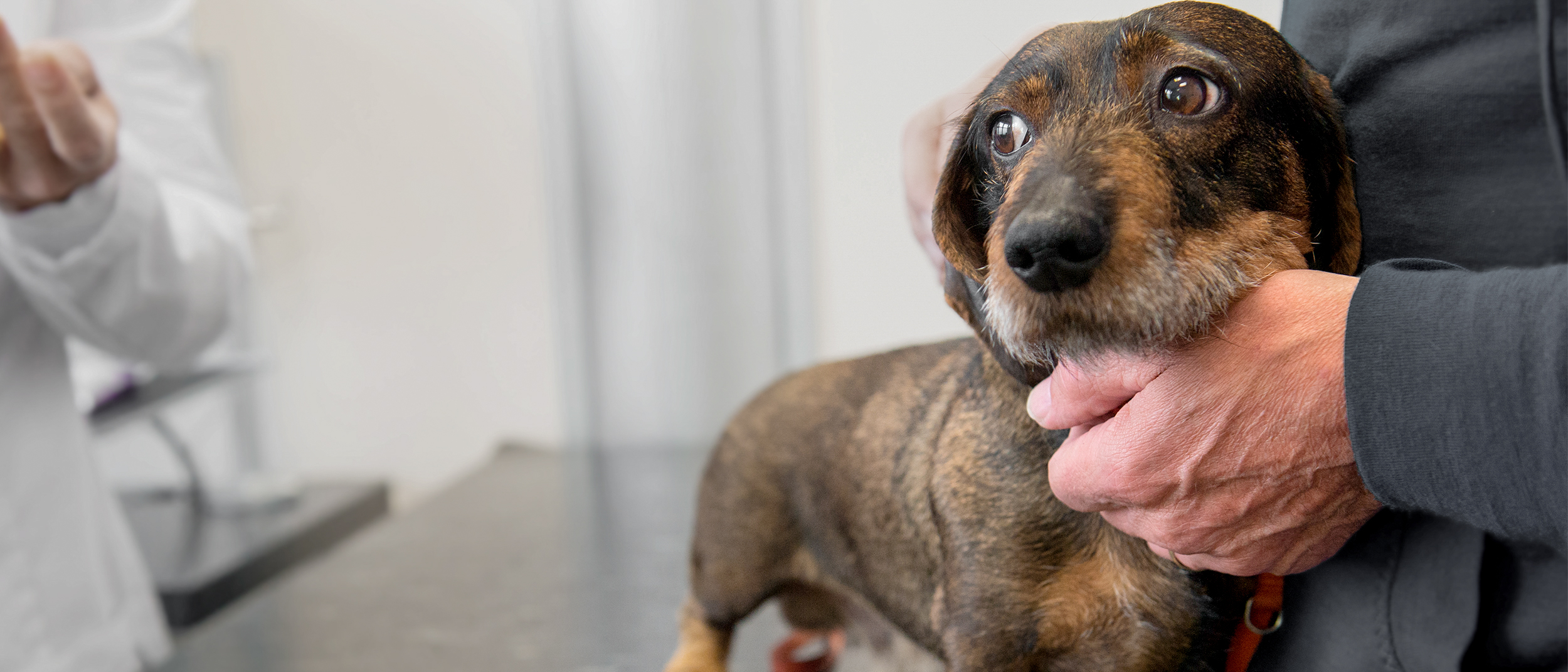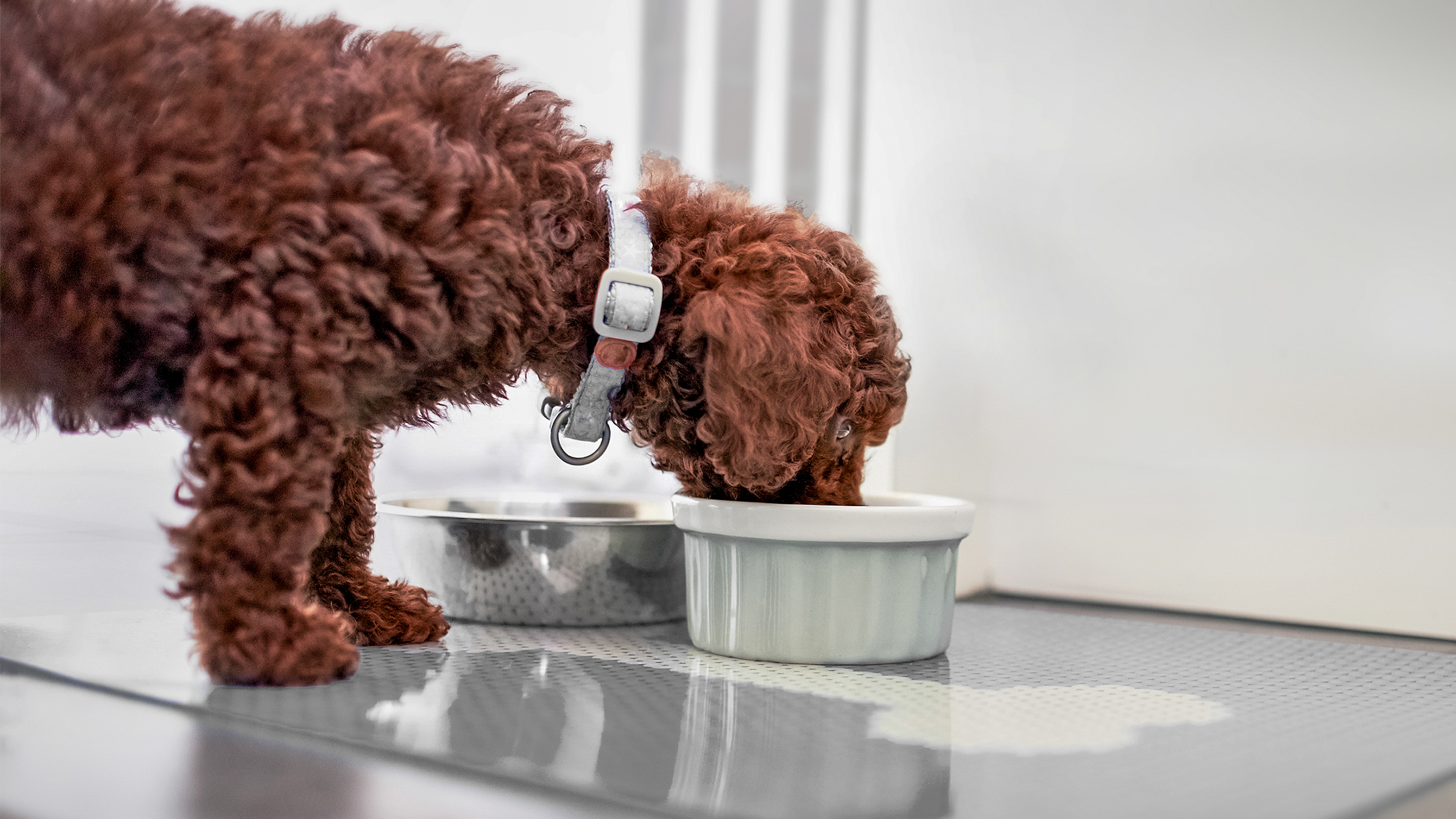Common dog digestive problems

While dogs tend to have robust digestive systems, there are some common issues they can suffer from caused by bacteria, diet, lifestyle, and other factors. The symptoms of these issues can point to a number of potential causes, so it's important to consult your vet for further advice and treatment.
Symptoms and causes of diarrhea in dogs
If your dog is suffering with diarrhea, it will move its bowels more frequently than normal and stools may be of a looser consistency. Your vet will make the distinction between diarrhea caused by small intestine problems, and those caused by issues in the large intestine; the latter generally results in more mucus-like diarrhea of a small volume, but frequent.
Diarrhea can be caused by your dog eating something which disagrees with them, a bacterial or viral infection, and worms or other parasites, or can be an indicator of an underlying condition. Puppies are particularly at risk as they have very vulnerable digestive and immune systems.
An infestation of parasites can cause diarrhea in your dog, including roundworms, flatworms, and protozoa, like coccidia. Although de-worming gets rid of worms in the digestive tract, your dog is still at risk as not all treatments are effective against all parasites.
Your dog may also have diarrhea if they have a dietary hypersensitivity, or allergy, or if they are suffering from malabsorption - where their body is unable to get what it needs from their food.
Treatment of diarrhea in dogs
Depending on where the problem originates, your vet will prescribe different treatments for your dog's diarrhea. This may include further removal of parasites, medicine to treat an infection, and dietary management, such as restricting your dog’s diet for at least 24 hours, then giving them a specialized diet to reduce the workload on the gut and improve stool quality.

Symptoms and causes of constipation in dogs
If you notice your dog struggling to move its bowels and straining, it may be constipated. Signs of constipation include having stool that is infrequent, hard or dry.
Constipation can be caused by a lack of exercise, diet, trauma, a change of environment and underlying diseases.
Treatment of constipation in dogs
Your vet is likely to prescribe medication as immediate relief for your dog, and may also suggest gentle surgical procedures depending on the severity of the problem. Dietary changes can also help manage this condition in your dog; for example, balancing the types of fibre in your dog’s diet can help improve stool quality and the overall health of their digestive system.
Symptoms and causes of IBD in dogs
Like humans, dogs can suffer from inflammatory bowel disease (IBD). The symptoms can include chronic diarrhea, vomiting and weight loss, which often become more frequent or severe over time.
Unfortunately, it’s not clear what exactly causes IBD in dogs, and it may stem from multiple problems. Because there can be many possible underlying causes, your vet will attempt to rule out all other causes first. Their diet can play a significant role in treatment.
Treatment of IBD in dogs
Dietary intervention is often used to manage IBD in dogs. The amount of fat may be changed, and a highly-digestible, high-quality protein source included as part of their diet so they get the energy they need without putting undue strain on their system.
If you notice your dog suffering from one of these digestive problems, make sure to visit your vet – they’ll be able to conduct a thorough examination and advise you on the best treatment possible.
Related Articles
Find a vet
If you have any concerns about your dog’s health, consult a vet for professional advice.
Like & share this page